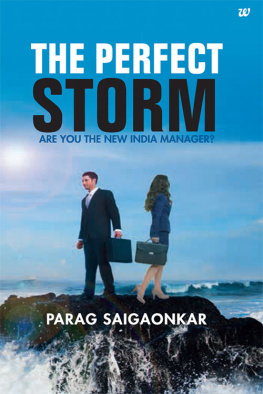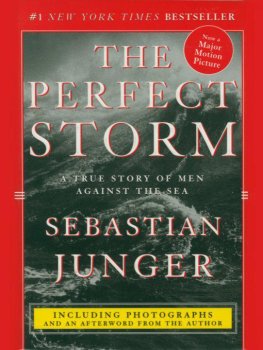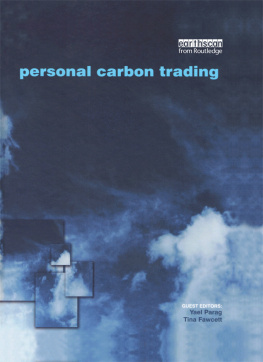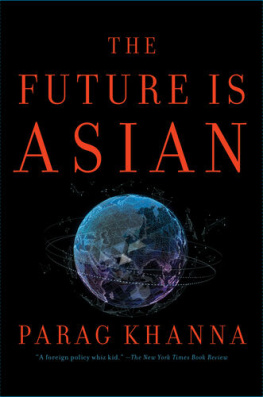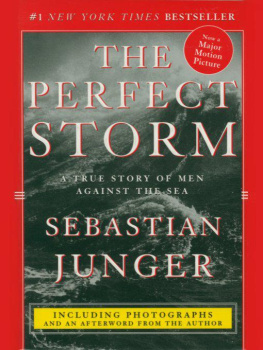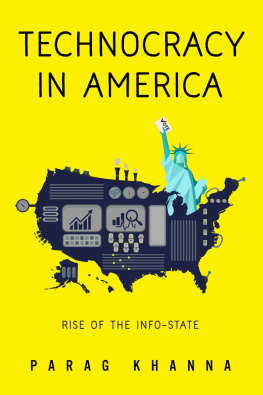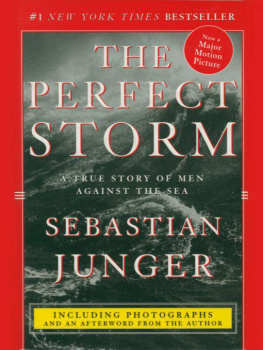Parag Saigaonkar - The Perfect Storm
Here you can read online Parag Saigaonkar - The Perfect Storm full text of the book (entire story) in english for free. Download pdf and epub, get meaning, cover and reviews about this ebook. year: 2014, publisher: Westland, genre: Politics. Description of the work, (preface) as well as reviews are available. Best literature library LitArk.com created for fans of good reading and offers a wide selection of genres:
Romance novel
Science fiction
Adventure
Detective
Science
History
Home and family
Prose
Art
Politics
Computer
Non-fiction
Religion
Business
Children
Humor
Choose a favorite category and find really read worthwhile books. Enjoy immersion in the world of imagination, feel the emotions of the characters or learn something new for yourself, make an fascinating discovery.
- Book:The Perfect Storm
- Author:
- Publisher:Westland
- Genre:
- Year:2014
- Rating:5 / 5
- Favourites:Add to favourites
- Your mark:
- 100
- 1
- 2
- 3
- 4
- 5
The Perfect Storm: summary, description and annotation
We offer to read an annotation, description, summary or preface (depends on what the author of the book "The Perfect Storm" wrote himself). If you haven't found the necessary information about the book — write in the comments, we will try to find it.
The Perfect Storm — read online for free the complete book (whole text) full work
Below is the text of the book, divided by pages. System saving the place of the last page read, allows you to conveniently read the book "The Perfect Storm" online for free, without having to search again every time where you left off. Put a bookmark, and you can go to the page where you finished reading at any time.
Font size:
Interval:
Bookmark:

Parag Saigaonkar is a Principal with Deloitte Consulting working in the India market. From 2005 to July 2013, Parag was the Regional Managing Director for the firms global off-shore consulting services out of India during which time he helped grow the practice from a few hundred to several thousand professionals across several offices in India.
Parag began his career with the firm in 1990. In 1995, he moved to Hong Kong and later, also had a stint in Beijing. Parag moved from Beijing to Mumbai in April 2005 where he presently lives with his wife Vandana and his two sons Pranav and Arjun.
When he is not pursuing clients, Parag likes to spend time with his family, mostly negotiating deals between his two boys. Most feuds at home have been taken care of by his specially prepared pasta or a quick road trip to Pune. His mental notes about people and situations around him led him to blogging at first, and later to The Perfect Storm .
The
Perfect
Storm
Are you the New India Manager?
By
Parag Saigaonkar

westland ltd
61, 2nd Floor Silverline Building, Alapakkam Main Road,
Maduravoyal, Chennai 600 095
93, 1st Floor, Sham Lal Road, Daryaganj, New Delhi 110 002
First published by westland ltd 2014
First ebook edition: 2014
Copyright Parag Saigaonkar 2014
All rights reserved
ISBN : 978-93-84030-71-1
Typeset: PrePSol Enterprises Pvt. Ltd.
This book is sold subject to the condition that it shall not by way of trade or otherwise, be lent, resold, hired out, circulated , and no reproduction in any form, in whole or in part (except for brief quotations in critical articles or reviews ) may be made without written permission of the publishers.
To my parents for their courage to chart unknown waters; Vandana for being my anchor and steer; Pranav and Arjun my north stars
Table of Contents
2.2Sailing Skills Choose well, stay put,
navigate small trips
Foreword
People often call India a talent goldmine. Thats a pretty big claim, but as a Talent executive for a large U.S. organization thats been operating in India for over a dozen years, I have been amazed at just how true it is. In fact, its hard to overstate the quality of talented people in India. Our Indian employees are invariably innovative, flexible, smart, and incredibly hard-working. A rich vein of gold, indeed.
So, yes, India is a goldmine of talent. But mining gold takes time, patience, and effort. Likewise, helping the talented people of India to shine requires a lot of understanding on both sides, as well as trust and hard work. Because our goal isnt just to find talent gold we want to help our colleagues in India develop and grow. Just as we do for our U.S.-based employees, we want to create conditions in which they can thrive as leaders.
Indian history is, of course, rich and deep, and Western managers have a steep learning curve to understand the environment, social pressures, and desires of the young people who comprise the majority of this remarkable talent pool. I should add that this isnt strictly an East/West issue. Even managers whove spent their whole lives in India have trouble figuring out the young people of Indias Gen Y, who grew up under very different circumstances than their parents.
And Indian professionals wanting to advance into leadership in Western companies need to seek out mentors who understand todays business culture in India. Those mentors may be hard to find because the culture has shifted significantly in just the space of a generation or two. A 21-year-old entering the world of work in India today has very different needs and wants from his or her Western peers, but theyre also different than those of an Indian beginning a career 30 or 40 years ago. The pioneering young people creating modern Indias business culture need pioneering mentors people with wide perspectives, who can assimilate a diverse range of ideas and styles of doing business and translate that knowledge in a way that can help Indias young leaders thrive.
Parag Saigaonkar has a unique perspective on these issues. As an Indian expat turned re-pat, hes seen the business world from both the Eastern and the Western perspectives. And he has some valuable advice for all of us doing business in India whether were miners or gold, organizations or talent.
Jennifer Steinmann
Chief Talent Officer, Deloitte LLP
Preface
In September 1970, I left India on a Toronto bound Swiss Air flight for my new home in Canada with my mother and older brother. I was four years old. It was only years later that I came to know how much of a risk my father had taken by emigrating to a foreign land in search of a good life for his children.
When we left, my father still had no secure job at hand even though he had left a few months earlier in order to arrange for a job and abode for his family. It was a huge, huge risk and one that had no precedent in the family. We were, for a long time, the only family unit, within an extremely close knit traditional Maharashtrian extended family, to have migrated overseas.
So, when I did return back to India thirty five years later to work (via a nine year stint in Hong Kong and Beijing), the mini adjustments that my family and I had to make around traffic, weather, spices, and school admissions, though challenging, were trivial in comparison to the trepidations my father probably bore in his initial years in a place so far away from home.
For me, it was just coming back home again with a little bit of an expat mindset woven in. Simple.
Year 2005 - India was on the move: economy and confidence surging, largest youth population, impressive English speaking man power, deep pool of professionals and technocrats set to become the service provider of the world. With an average age of 25-26, ten years younger than China and twenty behind the western world, this was the harbinger of what could be a very Indian century.
India was the source and destination for talent. And my job at hand was to lead a team of around 500 of these young professionals. These Gen Yers (cohort of those born 1980-onwards) filled out the work place with a few Gen Xs (those born between the early 1960s and 1980) sitting around the office in their corner cabins. By the way, my office was pitched up as a symbolic fish bowl in the middle of the floor. The Gen Ys were a generation very different from the baby boomers (born between 1946 and the early 1960s) and perhaps even the Gen Xs when it came to work ethics, skill sets, expectations, goals, dilemmas etc.
And it is precisely this otherness that keeps me curious.
Since 2005, I have watched India and Indians up close, interacted with them, learnt a great deal about them and learnt a great deal from them. Also, I have in my role attempted to share my own observations with them too.
One of the best parts of my job, as an organizational leader, has been visiting campuses all over India and meeting in person these Gen Yers , the so called demographic dividend, Indias ticket to economic prosperity. At campuses, I typically start my introductory talks by telling the students that they have won the parental lottery! And that they should go home and firstly thank their parents for being born at the right time and at the right place. The best time in modern Indian history!
I tell them how they are the poster children, having gone through life with minimum challenges, as their parents have protected them and provided them the best they could. I mostly meet students who have throughout their lives scored at the top of their classes in school, won admission to the best of colleges, graduated from leading universities. The next filter for them would be getting an offer from a company like ours and that guaranteed them a spot at the very tip of the dividend iceberg.
Next pageFont size:
Interval:
Bookmark:
Similar books «The Perfect Storm»
Look at similar books to The Perfect Storm. We have selected literature similar in name and meaning in the hope of providing readers with more options to find new, interesting, not yet read works.
Discussion, reviews of the book The Perfect Storm and just readers' own opinions. Leave your comments, write what you think about the work, its meaning or the main characters. Specify what exactly you liked and what you didn't like, and why you think so.

